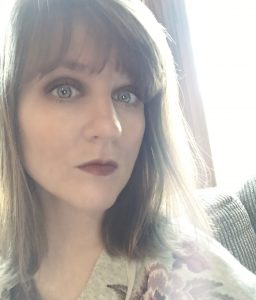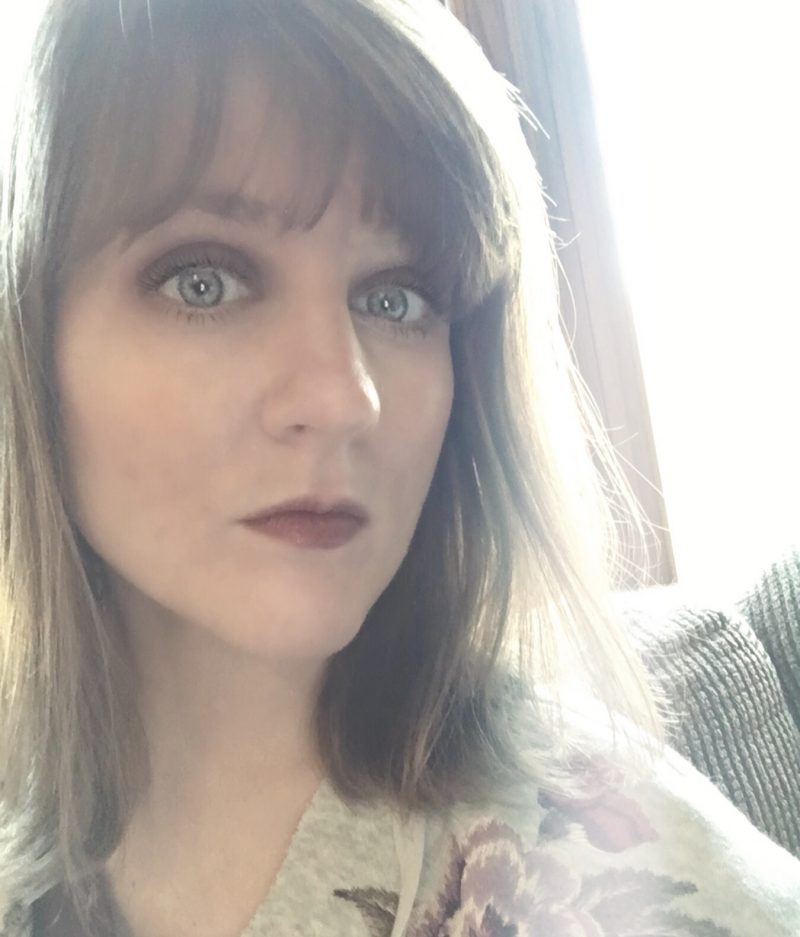Broken Mirrors
I’m standing in front of the full-length mirror in my bedroom, scrutinizing my reflection while I devour the rest of my Halloween candy. The walls are plastered with flashy posters of Mary-Kate and Ashley Olsen, my current idols. I look at their identical, doe-eyed faces, then back at my own, scowling at my round cheeks. Am I fat? I think I’m fat. I bite into another Snickers bar, watch myself chew and swallow while trying to suck in my stomach. Guilt plagues me with every bite, but it’s like my hand and mouth have a mind of their own. For the first time in my life, I feel out of control. I eat until I’m on the verge of vomiting, then curl up on the floor and clench my stomach. Diet starts tomorrow, I promise myself. I am ten years old.
Three years later, I stare up at the ceiling from a hospital bed, watching the first gray flickers of morning light dance across the room. I hear the screech of wheels, the nurses pushing the blood pressure machine from room to room. It’s six AM, and it will be my turn soon. They’ll take my vitals, then send me down the hall in a hospital gown to be weighed. The nurse will check my back and wrists for evidence of self-harm, then go through her list of questions: Did I eat all of my food yesterday? Do I feel sick? Do I feel cold or tired? The last one is a stupid question; I always feel cold and tired.
I never meant for it to get this out-of-control. The summer before eighth grade, I promised myself that I would lose a few pounds. Having never been happy with how I looked, I was on a mission to “fix” my appearance. It was easy at first. I cut out breakfast, started exercising more. Seeing the number on the scale drop so quickly was riveting. It started becoming a game, a contest against myself: how much weight could I lose by tomorrow? By next week? Eventually, I got so neurotic about the fat content in my food that the only thing I could put in my mouth was fruit. Exercise consumed my life. Reasonably, I knew that I was taking it too far, but I couldn’t stop. I had become the antithesis of my ten-year-old self.
Because my parents were always on some sort of health kick themselves, they took a while to recognize my detrimental behaviors. By the time my mom finally brought me to be evaluated at a treatment program for eating disorders, my health was disintegrating. My hair was falling out in clumps, my nails and lips were constantly blue, and I couldn’t stand up without getting light-headed. Before they admitted me into the inpatient unit, the doctor diagnosed what I already knew.
“She has anorexia.” He turned to my mother while I sat shivering on the exam table in a hospital gown. “Her vitals are dangerously low. If she doesn’t get treatment now, she will die.” It barely phased me to learn that I was flirting with death.
The doctor continued to discuss my condition with my mom as if I wasn’t in in the room. I quickly learned that when you’re thirteen years old and voluntarily starve yourself, you eventually lose your freedom and any possibility of making decisions for yourself. You are a puppet, only to be shifted around and placed where a medical team feels fit. Once someone discovers your eating disorder, you lose all control. You’re forced to get better, whether you like it or not.
That’s how I ended up here, on a hospital unit with twenty other starving girls. We are all shells of our former selves, walking skeletons with translucent skin, sunken eyes, and bony fingers. I am the youngest by far; most are college-age young women whose faces are aged beyond their years by emaciation. They float around the halls, ghosts with untold stories behind haunted eyes and purple lips that refuse to part. Is that what I look like? I wonder. Am I a ghost, too?
Days on the unit are spent in group therapy sessions, meetings with doctors, and eating. We eat a lot here, almost constantly, it seems. We have three meals and three snacks a day. Something that is often misconceived about people with eating disorders is that we hate food. For most of us, it’s the opposite. We love food. We’re obsessed with it. At least, that’s the case for me. The summer leading up to my hospitalization, I pored over cookbooks and pictures of pastries and desserts. I talked about food all the time, partially to convince people that I wasn’t ill, but mostly because that’s all I thought about. I was dominated by it, but there was no way in hell that I was going to eat it without being forced. It’s hard to understand, even for me. All I knew was, I loved food, but I loved starving more.
This is what everyone with an eating disorder has in common: we build our identity on being not just thin, but being the thinnest. We want skeletal bodies and hollow cheeks. We are our disorder. It owns us. As much as we obsess over food, as much as we want to eat, we don’t. When we eat, we give up that identity. We lose part of who we are. When faced with the choice to eat or starve, we will always starve. This is why it’s so difficult and frightening to recover from an eating disorder. No one wants to lose their identity.
For five weeks, I do everything that I am instructed to do and eat what I’m supposed to eat. When I am deemed healthy enough to go home, the medical team sends me on my way with a strict meal plan, and instructions to return to the outpatient clinic twice a week. My body is healthier. My mind is not.
The thing about eating disorders is, they never really go away. Once it hooks you, you’re in for life. You never really look at food or your body the same way again. It’s like cracking a mirror into twenty different pieces and trying to put it back together again. No matter how well the pieces fit, the reflection will always look slightly distorted.
Over the next several years, I relapse. Once, twice. At twenty-three, I relapse for a third time. After a rough patch in college, I managed to stay healthy and maintain relatively normal eating habits, despite an ongoing battle with depression. Now, here I am again, living my life according to a set of rules that I’ve laid out for myself surrounding food and exercise. I’m exhausted from remaining in constant motion, desperately attempting to burn as many calories as possible. At a minimum, I must run ten miles a day, sometimes up to twenty-five. I run so much that I burn a hole in the treadmill in the basement.
It’s in the middle of one of these January treadmill runs, a month after my mother’s death, when I just stop. It’s after eleven PM, and I stand there, panting and staring at my reflection in the dark window in front of me. Why am I doing this to myself? I think back to just weeks ago, and how strange it was to see my mom’s lifeless body. I knew from the second I looked at her that it wasn’t really her anymore; it was just a body. It’s the first time I’ve really thought about it, and I realize that’s all our bodies really are: vessels that carry around our spirits for a little while, places for souls to reside until it’s time for them to leave. We spend all of this time and energy perfecting them, grooming them, starving them, and hating them, but they will only fail us in the end. My whole life, I have told myself that I will be more worthwhile, more beautiful, more important, once I lose weight. Changing my body has consumed my life, when what really needs to change is my mind. Only then will I be free.
Recovering from an eating disorder is like running blindly through a dark forest, not knowing if you’ll come out alive on the other side. It’s frightening, lonely, and, at times, seems impossible. I’m twenty-eight now, and still have days where I feel like I’m looking at my reflection in a shattered mirror. I hate the scar above my right eye, the way my stomach isn’t completely flat, and how I can’t squeeze into size zero jeans anymore. I am, and probably always will be, “recovering”.
Most of the time, though, I am okay. Not perfect, but okay. I’ve stopped chasing perfection, mostly because it doesn’t exist. I eat a relatively normal diet, whatever “normal” means. It seems as though the older I get, the less I obsess over my appearance. I still remember that ten-year-old frowning into the mirror, the girl lying in the hospital bed, and I ache for all of the years tainted with self-hatred. After almost twenty years of trying to change who I am, this is what I know now: flaws are inevitable, acceptance is crucial, and even reflections in broken mirrors are beautiful sometimes.
 Jaclyn Melander lives in Minneapolis, MN, where she works as a barista and freelance musician.
Jaclyn Melander lives in Minneapolis, MN, where she works as a barista and freelance musician.
Jaclyn can be found on Facebook.








I am blown away by your story. You are an incredibly brave person for facing down your demons. Thank you for sharing this. You have given me and probably many others just a little bit of courage to face our own challenges and see the beauty in our own broken mirrors. I wish you the best on your path of recovery.